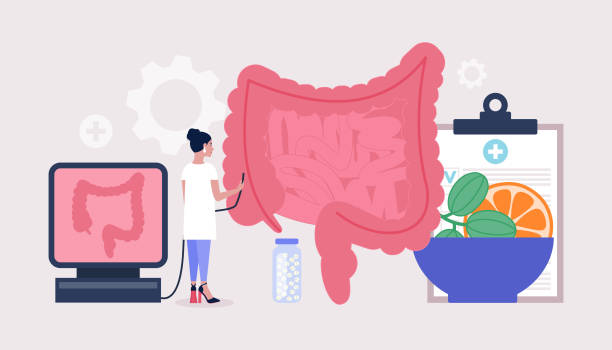Kinds of Diets
Mastering the Naturopathy Diet
Welcome to the world of naturopathy diet, where nutrition and wellness are in perfect harmony. If you want to adopt a healthier lifestyle and nourish your body from within, you’ve come to the perfect place. The Naturopathy diet is more than simply a fleeting fad; it is a comprehensive approach to eating that focuses on reaching optimal health through natural means.
Principles of Naturopathy Diet
Naturopathy diet is based on the notion that the body has a natural potential to cure itself when given the proper tools. Here are several important concepts that guide this nutritional approach:
- Whole Foods: This diet is based on the consumption of entire, unprocessed foods. Fruits, vegetables, whole grains, and lean proteins are recommended since they are high in important nutrients and free of hazardous additives.
- Nutrient Density: This diet emphasizes the value of nutrient-dense foods. These are foods that contain a high concentration of vitamins, minerals, and antioxidants while being low in calories. Prioritizing nutritional density ensures that your body receives the nutrients it requires to thrive.
- Elimination of Processed Foods: Processed foods, which are generally heavy in refined carbohydrates, harmful fats, and artificial additives, contribute significantly to inflammation and chronic diseases. Naturopathy recommends eliminating these foods in favor of natural, whole-food alternatives.

Benefits of Following a Naturopathy Diet
By adopting a naturopathy diet, you can experience a wide range of benefits that extend beyond just physical health. Here are some of the advantages you can expect:
- Improved Digestion: Eating more whole foods and avoiding processed meals will help you digest better. Consuming fiber-rich fruits, vegetables, and whole grains will help you have regular bowel movements and maintain a healthy gut microbiota.
- Increased Energy Levels: Nutrient-dense foods give your body the fuel it requires to function properly. By eating clean, unprocessed meals, you may maintain energy throughout the day and prevent the energy collapses that come with sugary snacks and refined carbohydrates.
- Weight Management: The Naturopathy diet can be a useful technique for weight loss. Whole foods have fewer calories and more fiber, which can help you feel filled for longer and avoid overeating. Furthermore, the emphasis on nutrient density guarantees that you get enough nutrients without consuming too many calories.
Foods to Include in a Naturopathy Diet
When following a naturopathy diet, it’s important to prioritize the consumption of nutrient-dense foods. Here are some examples of foods that you should include in your diet:
- Colorful Fruits and Vegetables: Colorful fruits and vegetables include vitamins, minerals, and antioxidants that promote general health. Consume a range of colors in your diet, including leafy greens, berries, citrus fruits, and cruciferous veggies.
- Whole Grains: Choose whole grains like quinoa, brown rice, and oats, which are high in fiber and important nutrients. These can provide long-lasting energy and promote intestinal health.
- Lean Proteins: Choose lean protein sources such as chicken, fish, tofu, and lentils. These are necessary for muscle growth and repair, as well as producing a sense of fullness.

Foods to Avoid in a Naturopathy Diet
To fully embrace a naturopathy diet, it’s important to eliminate or greatly reduce the consumption of certain foods. Here are some examples of foods to avoid:
- Processed Foods: These include packaged snacks, sugary drinks, fast food, and processed meats. These foods are often high in unhealthy fats, refined sugars, and additives that can contribute to inflammation and chronic diseases.
- Artificial Sweeteners: While they may seem like a healthier alternative to sugar, artificial sweeteners can actually disrupt your body’s natural ability to regulate blood sugar levels. Opt for natural sweeteners like honey or maple syrup in moderation.
- Refined Grains: White bread, white rice, and pasta made from refined grains lack the fiber and nutrients found in whole grains. Choose whole grain options instead.
Sample Naturopathy Diet Plan
Adopting a naturopathy diet doesn’t have to be overwhelming. Here’s a sample meal plan to give you an idea of how to structure your meals:
- Breakfast: Start your day with a bowl of oatmeal topped with fresh berries and a sprinkle of nuts. Enjoy a cup of herbal tea or freshly squeezed juice.
- Lunch: Have a colorful salad with mixed greens, cherry tomatoes, cucumber, avocado, and grilled chicken. Dress it with a homemade vinaigrette made from olive oil and lemon juice.
- Snack: Munch on a handful of almonds or enjoy a piece of fruit for a mid-afternoon pick-me-up.
- Dinner: Prepare a salmon fillet grilled with lemon and herbs, served with a side of steamed vegetables and quinoa.
- Dessert: Satisfy your sweet tooth with a small piece of dark chocolate or a bowl of mixed berries.

Tips for a Successful Transition
Transitioning to a naturopathy diet can be a gradual process. Here are some tips to help you make a successful transition:
- Start Slow: Incorporate more whole foods into your diet while progressively minimizing processed foods. This will help your taste buds and body adjust to the new sensations and textures.
- Meal Planning: Plan your meals ahead of time so that you have nutritional selections on hand. This can assist you avoid reaching for harmful convenience foods when you’re short on time.
- Experiment with Recipes: Try out various recipes and cooking techniques to make your meals more interesting and pleasurable. There are numerous naturopathic diet-friendly dishes available online to inspire you.
Common Misconceptions
There are some misconceptions surrounding naturopathy diet that are important to address:
- Restrictive: While naturopathy diet does encourage the elimination of certain foods, it is not meant to be overly restrictive. It is about nourishing your body with whole, nutrient-dense foods rather than depriving yourself.
- Lack of Protein: Some people believe that a naturopathy diet lacks protein, but this is not true. By incorporating lean sources of protein such as chicken, fish, tofu, and legumes, you can meet your protein needs.
Naturopathy Diet vs Other Dietary Approaches
Naturopathy diet shares similarities with other dietary approaches, but it also has its unique characteristics. Here’s a comparison with some popular diets:
- Mediterranean Diet: The Mediterranean diet, like the naturopathy diet, emphasizes whole, unprocessed foods and the consumption of healthy fats. However, the Mediterranean diet permits moderate use of red wine and dairy products, whereas the naturopathy diet discourages these.
- Paleo Diet: The paleo diet emphasizes consuming foods that our predecessors would have consumed, such as lean meats, fruits, vegetables, nuts, and seeds. Naturopathy emphasizes whole meals but does not prohibit dairy or legumes.
Conclusion
In conclusion, the naturopathy diet provides a natural and long-term approach to wellness. By focusing on full, nutrient-dense foods and eliminating processed foods, you may fuel your body from within and attain optimal health. Whether you want to treat specific health conditions, lose weight, or simply improve your general vitality, this diet offers a comprehensive approach to reaching your goals. Accept the transformational potential of feeding your body in the most natural way possible and go on a path to improved health.
Trusted Health, Wellness, and Medical advice for your well-being


